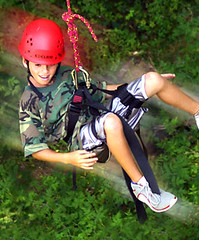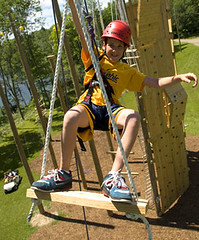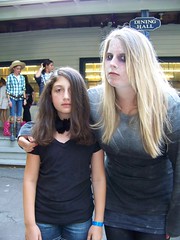 It certainly is a good time to thinking about gratitude. Two days before Thanksgiving, we are now planning our trip to the grandparent’s house, making our list of yearly ‘thankfuls’, and looking forward to spending some extra time with those most important to us. Thankfully, even the media gets into the action as well.
It certainly is a good time to thinking about gratitude. Two days before Thanksgiving, we are now planning our trip to the grandparent’s house, making our list of yearly ‘thankfuls’, and looking forward to spending some extra time with those most important to us. Thankfully, even the media gets into the action as well.
I just finished a great article on gratitude which you can find here. Kate and I always felt feelings of gratitude lead to a happier, more productive life. It’s nice to see science catching up with us!
Gratitude is so important that I end each day with our boys at camp asking them about their two favorite things from that day. Our Head Counselor or Kate does the same on the girl’s side. We center our first campfire around gratitude. (Here is a great poem I’ve found for the occasion.) We also have a longstanding tradition of our sport teams thanking their coaches, refs, and drivers in front of the whole camp, win, lose, or draw.
Researchers believe feelings of gratitude are 50% genetic. The remainder is learned. We focus on teaching our campers to be thankful for their many blessings (and make it fun in the process!)
At this thankful time of year, I challenge each of you to make a list of people and experiences for which you are grateful. Happiness is colored most effectively and durably from these two categories. Further, I challenge you to start your own gratefulness habit: Each evening, before you fall asleep, find two things you are happy about from the day. Write them down or say them out loud. It’s a great way to end the day.
As for Weequahic, we are thankful for:
- The vision of our founder, Art Lustig, in creating the traditions of Weequahic
- The work of the Lustig and Seffer families for shepherding and adding to these traditions along the path
- The incredible staff with whom we have the pleasure of working during the summer and throughout the year
- Our supportive and thoughtful families who share their children with our community each summer, and
- Campers from around the country and world who bring energy, excitement, friendship, and joy to us each and every day
Have a wonderful Thanksgiving everyone!
Cole Kelly, Camp Director

 As children mature, they continue to develop and require more experiences where they can make independent choices without parents. If parents don’t allow children to make decisions and do things on their own, they won’t develop confidence or realize that they are not just extensions of their caregivers. It’s a tricky line that parents walk! Sometimes giving children room to spread their wings seems counter intuitive, but in order to grow into a self-reliant adult, children need to struggle without the offer of a quick fix. Even when parents can take care of things, the better choice is to support a child through the process of working through and solving problems. Long after a problem has been forgotten, a self-reliant child will remember hearing, “Wow! You amaze me! You really worked hard to figure that out.”
As children mature, they continue to develop and require more experiences where they can make independent choices without parents. If parents don’t allow children to make decisions and do things on their own, they won’t develop confidence or realize that they are not just extensions of their caregivers. It’s a tricky line that parents walk! Sometimes giving children room to spread their wings seems counter intuitive, but in order to grow into a self-reliant adult, children need to struggle without the offer of a quick fix. Even when parents can take care of things, the better choice is to support a child through the process of working through and solving problems. Long after a problem has been forgotten, a self-reliant child will remember hearing, “Wow! You amaze me! You really worked hard to figure that out.”

 Ah… Halloween us is upon us again. The kids are dressing up, planning their routes to the houses with good treats, and thinking of mischief… sounds like camp!
Ah… Halloween us is upon us again. The kids are dressing up, planning their routes to the houses with good treats, and thinking of mischief… sounds like camp! Both Halloween, with its spooky music and haunted houses, and camp, a first time away from home and all those new people, seem scary at first. However, you quickly realize you are having a blast and, at the end, look back on the experience with both surprise and joy.
Both Halloween, with its spooky music and haunted houses, and camp, a first time away from home and all those new people, seem scary at first. However, you quickly realize you are having a blast and, at the end, look back on the experience with both surprise and joy.